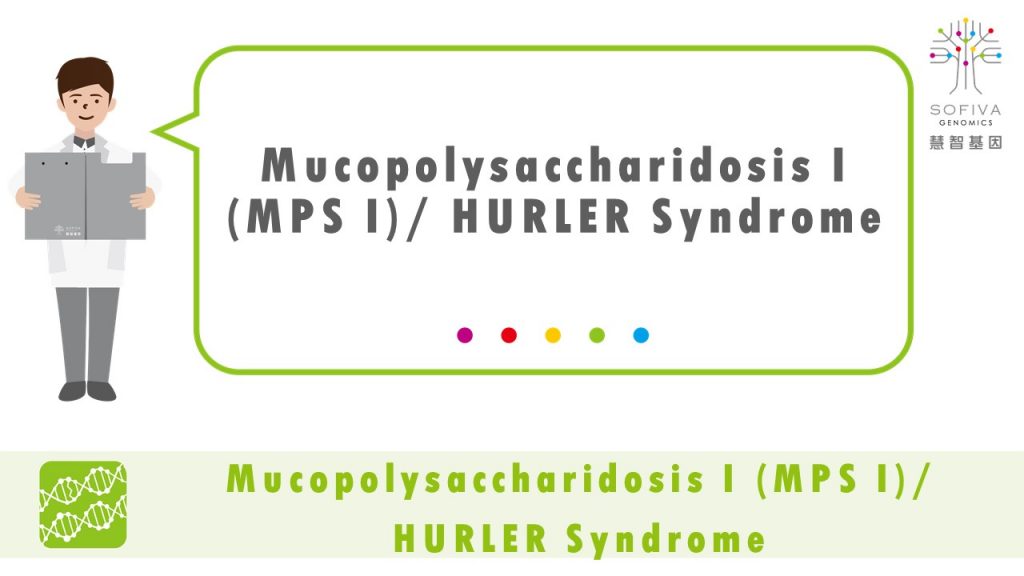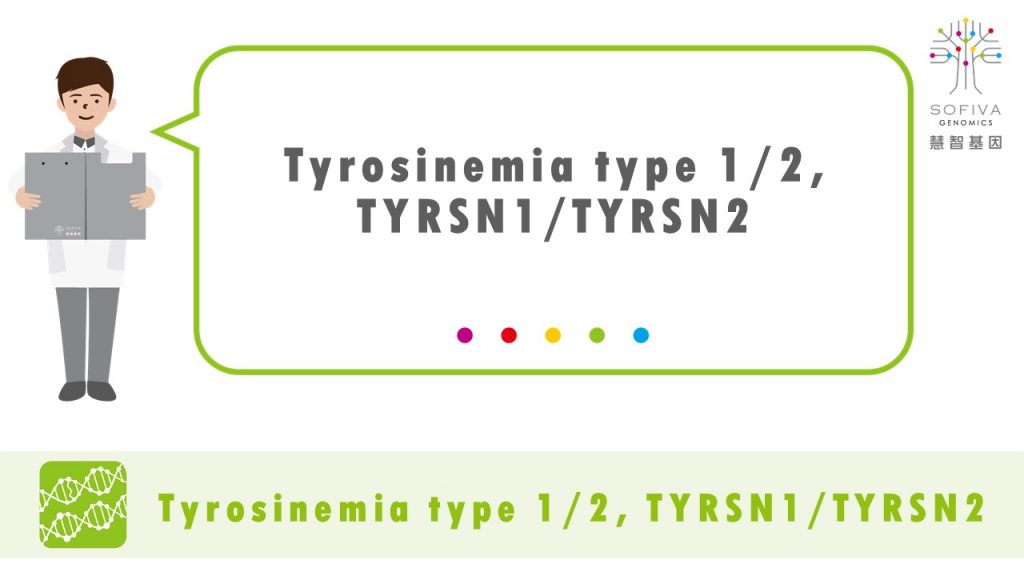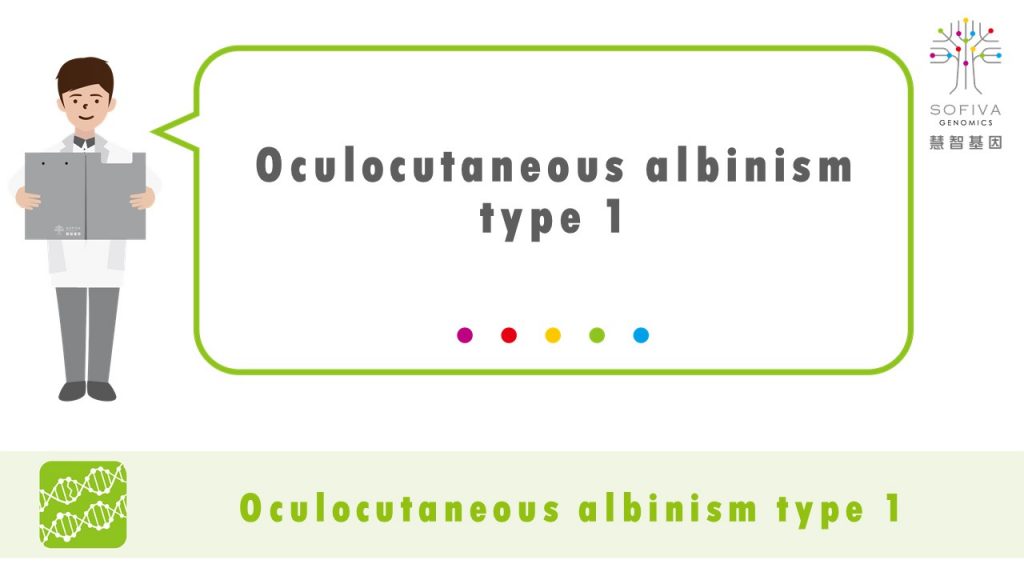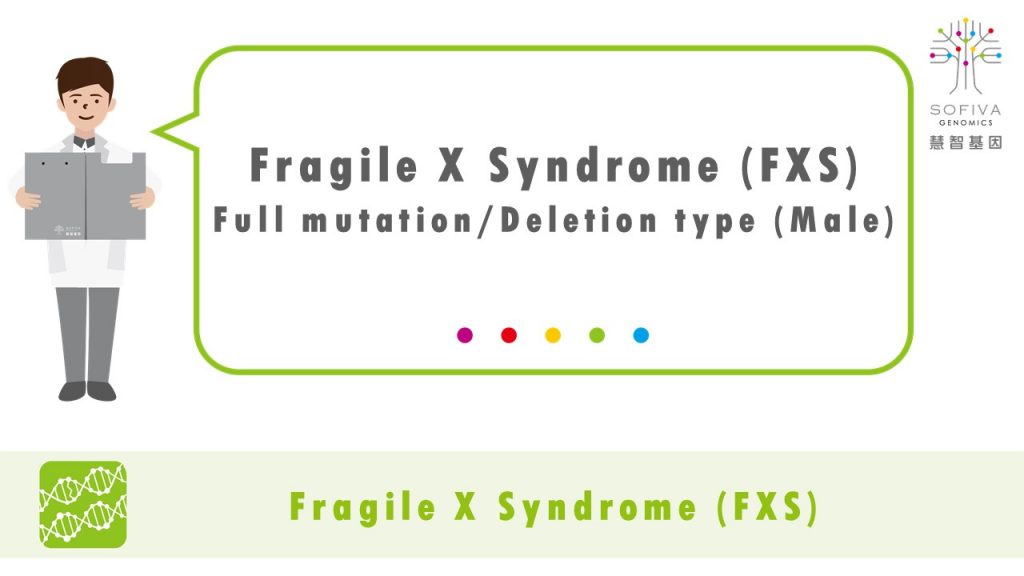This interpretation of results indicating that the patient may have an inherited metabolic disease can be used as additional information when you have consultations with doctors. Please read the following information carefully.
The introduction of Mucopolysaccharidosis I (MPS I)/ HURLER Syndrome:
Mucopolysaccharidoses, a group of lysosomal storage diseases, are classified into 11 types according to the genes involved. Type I is the most severe one. The genetic mutations cause malfunctioning of the enzymes breaking down glycosaminoglycans (GAGs) and lead to abnormal accumulation over time, which affects the shape and function of the skin, bone, joint, corneas, trachea and brain.
Infants with MPS-I may appear normal at birth. However, with the gradual accumulation of GAGs, some symptoms may begin to occur. These include dwarfism, macrocephaly, excessive hair growth, thickened skin, joint stiffness and irregularities, short and claw-like hands, enlarged organs and cloudy cornea. Additionally, intellectual disability is unrecoverable. MPS-I can be treated with bone marrow transplantation or injecting genetically engineered enzymes into patients. Please consult with the metabolism pediatricians for further examinations.





